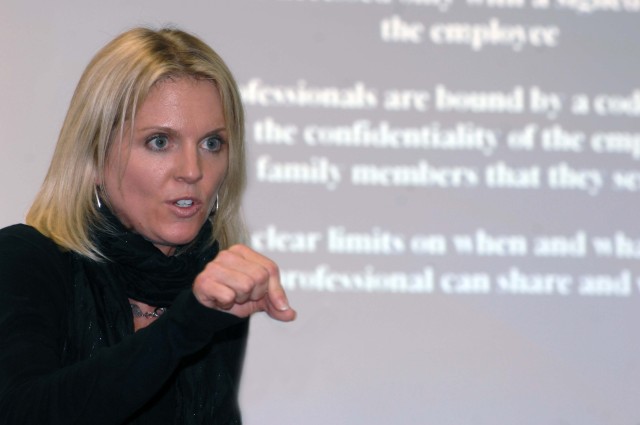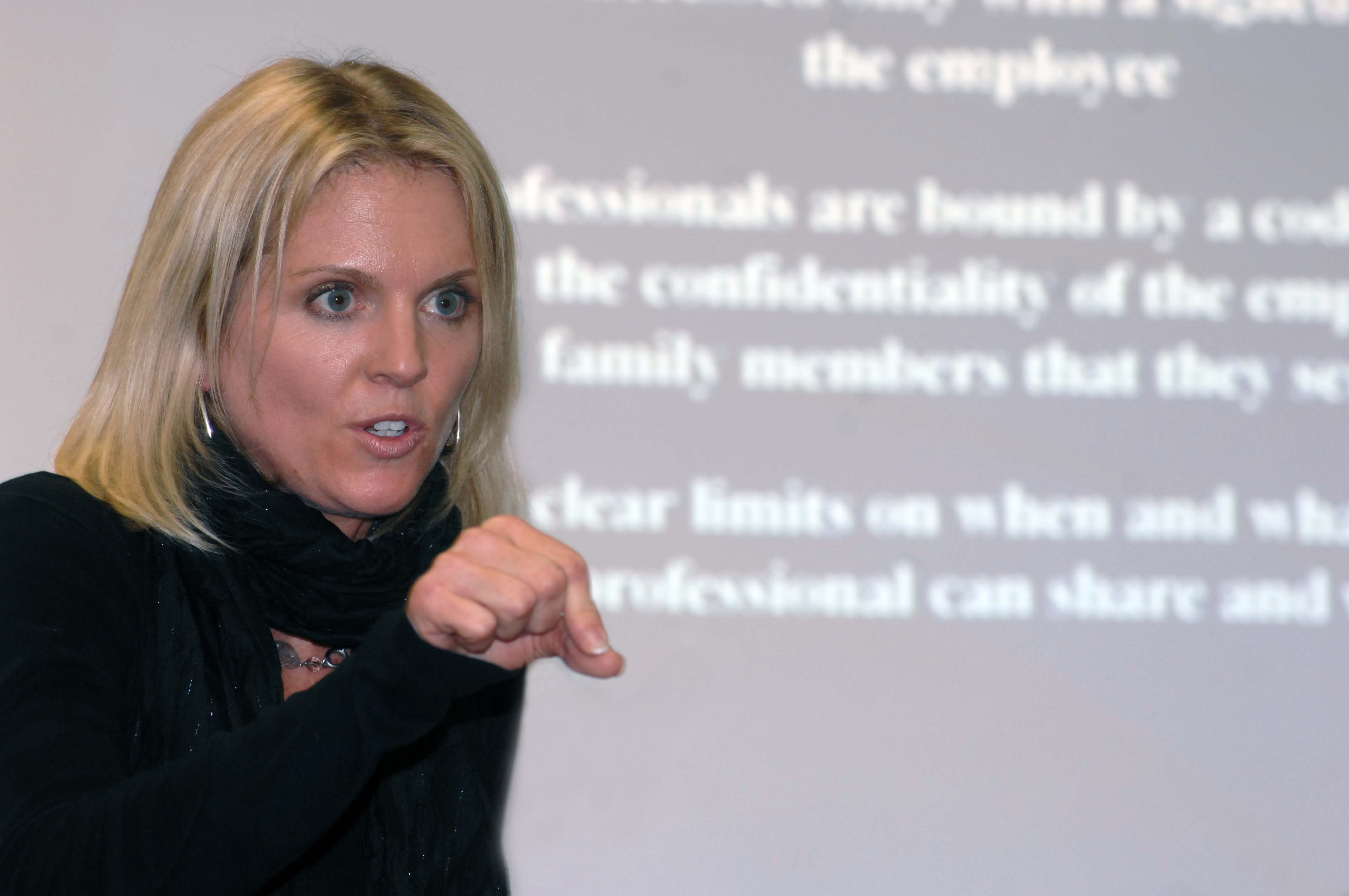
KAISERSLAUTERN, Germany - Civilian misconduct specialists gathered here March 5 for the first local Assistant Civilian Misconduct Action Authority Quarterly Liaison Conference.
"We want to establish a coordination of effort that will assist our civilian misconduct processes," said Don Gwinn, the U.S. Army Garrison Kaiserslautern's civilian misconduct specialist, who came up with the idea of having a local conference at each of the surrounding communities once a quarter.
Civilian misconduct specialists handle reported cases of crimes committed by U.S. government-affiliated civilians receiving logistical support within military communities.
These specialists process civilian misconduct cases and make recommendations to garrison commanders in their roles as the Civilian Misconduct Action Authority in their communities.
"Although we all use our guiding regulation (Army in Europe Regulation 27-9), our processes and approaches may be different, and we would like to streamline these processes and make them as similar as possible," Gwinn said.
The intent of the conference, he added, was to look at best practices in each community and possibly benchmark a process that may work at each garrison.
Hosted by the Kaiserslautern's Directorate of Human Resources, the conference saw participation from civilian misconduct officers from USAG Heidelberg, Wiesbaden, Baumholder and Kaiserslautern.
Heidi Porter, the 86th Airlift Wing's Mission Support Group civilian misconduct specialist, was also in attendance as she often works on cases not only works with Gwinn, but also with the other three specialists.
"I always felt (a local conference) was necessary because we are living so close together - within 50 or 60 miles," said Ralph Brecht, USAG Heidelberg's civilian misconduct specialist. "If we don't communicate and establish standardized streamline procedures, all we are doing is relocating problem-persons from one community to another one."
Each of the civilian misconduct specialists gave an overview of how civilian misconduct cases are handled in their communities.
"This workshop definitely helps because we can all gather and find out what each is doing in their own garrison," said Rickey Anderson, USAG Baumholder's civilian misconduct specialist.
Anderson, who is a retired Army MP (Military Police) but has only been a civilian misconduct specialist for a little more than year, added that he benefited from all the experiences of his counterparts at the conference.
Brecht has 14 years of experience.
The USAG Wiesbaden Civilian Misconduct Specialist Jim Woods was in the Army for 24 years as a MP and has been a civilian misconduct specialist for 12 years.
Gwinn is also a retired MP and has eight years experience as a civilian misconduct specialist.
"I got all my questions answered," said Anderson, holding up his list of 25 typed-questions.
Besides the garrison's and Ramstein's overviews, the one-day conference also showcased briefings from several agencies that work closely with civilian misconduct specialists on cases.
Von Borg, the Adolescent Substance Abuse Counseling Services program manager for Heidelberg and Mannheim military communities, talked about the importance of the partnership of civilian misconduct specialists and ASACS counselors.
These counselors can provide substance abuse treatment and prevention services for adolescents and their families.
The Baden-WAfA1/4rttemberg Alcohol and Drug Control Officer Heather Robinson explained how the Army's Employee Assistance Program works in general for government employees who may have substance abuse problems and specifically, for referrals from civilian misconduct specialists.
"It's not only about taking administrative action," Gwinn said. "(Civilian misconduct specialists) do a lot about rehabilitation - by seeing that (offenders) get counseling."
Military police operations and investigative briefings were given by Master Sgt. Ken Pryor, the garrison's Directorate of Emergency Services acting director, and select members of his staff.
Specifically, they discussed how the Installation Access Control System can restrict access for those barred from entering military installations throughout Europe.
Of particular interest to the civilian misconduct officers was the Loss Prevention Briefing given by Ken Randell, the Army and Air Force - Europe Loss Prevention manager.
He explained how he and Gwinn have teamed up to give these established AAFES - Europe Loss Prevention Briefings at KMC elementary, middle and high schools.
"When (Army) kids are caught shoplifting in one of our stores, (civilian misconduct specialists) process the actual cases and determines whether they should receive any certain type of punishment," said Randell, on why it made sense for them to team up for these briefings.
Woods hastily wrote down the person he needs to contact in Wiesbaden to see if he can also be a part of the Loss Prevention Briefings in his community.
"Makes sense," said Woods, who added that this is one of the best practices that Gwinn mentioned earlier on what can be taken away from these local conferences. "And, I will do it (Loss Prevention Briefings) because the kids are hearing (about the ramifications of shoplifting) from the AAFES side and from the command side."
In fact, Woods garnered so much information from this conference that he volunteered to host the next one in Wiesbaden.
The specific date has not yet been determined, but it will probably be in June, he said.

Social Sharing